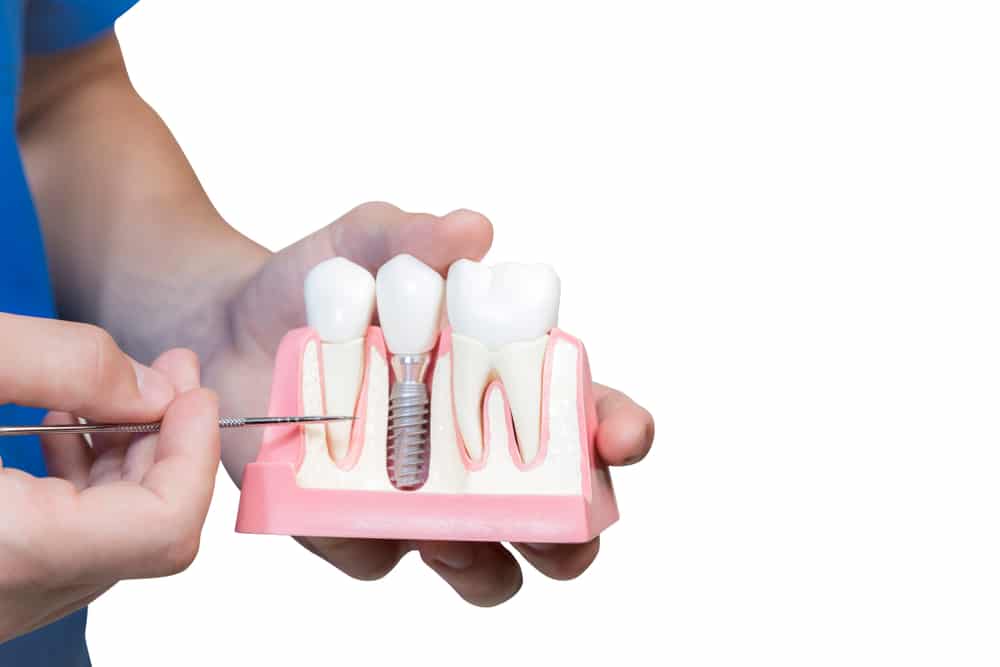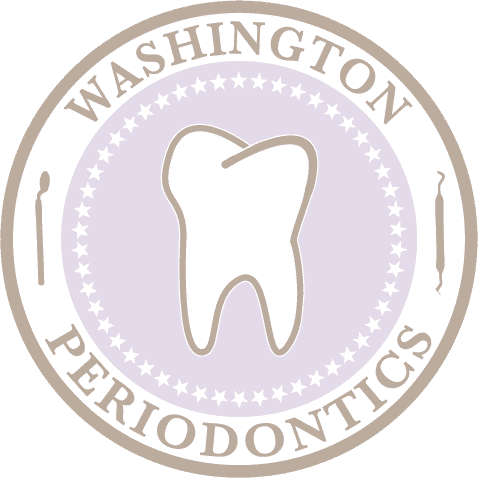Dental Implant Disease
Treatment

What is Dental Implant Disease Treatment in Burke?
Dental implants have many benefits—most notably, they can function just like a patient’s natural teeth. Dental implant surgery offers a strong, sturdy solution to missing teeth because they are implanted into the gum tissue and are anchored by the supporting bone in the patient’s jaw. The lesser-known downside to this restorative dental procedure is that implants can become diseased just like a natural teeth. Which is why we provide dental implant disease treatment in Burke, VA.
Peri-implant disease is a type of periodontal disease characterized by a chronic infection that causes inflammation in the tissues and bone structure surrounding the implant. Plus, if these complications are not treated, it may result in bone loss or loss of the implant and/or crown, making it much more difficult to place a second implant in the same location. Additionally, peri-implant disease may spread to adjacent teeth and gum tissue and jeopardize the patient’s overall dental health and wellbeing.
Getting dental implants, however, does not mean that you are going to get disease. Peri-implant disease is avoidable and easily treatable if caught quickly. Furthermore, in the early stages of implant disease the symptoms are relatively mild. However, the longer the infection goes untreated, the more serious the side effects will become.
Ultimately, if dental implants aren’t properly cared for, they can be lost and bone structure can become damaged.
What causes
peri-implant diseases?
There are several factors that may contribute to the development of peri-implant diseases. Poor oral hygiene is the most common cause of implant disease. Poor oral health allows bacteria to build up around the implant and surrounding tissues.
Additionally, if the implant procedure was not done correctly or the dental implant placement was incorrect, it may be more difficult to keep the area clean, which can also contribute to disease.
Moreover, smoking is also a risk factor for developing peri-implant disease, as it can damage the immune system.
Peri-Implant Mucositis
Peri-Implantitis
Advanced dentistry in a state-of-the-art surgical center.
Symptoms Of
Peri-Implantitis
-
Fracture of the restorative materials
(crown, screw, or abutment) - Pain
- Swelling
- Poor positioning of the implant
- Aesthetic problems
- Bad taste in your mouth
-
Pain or sensitivity while chewing
and/or drinking
- Phonetic problems
-
Loosening of the implant crown
or of the implant itself - Difficulty chewing
- Receding gums
- Persistent pain or discomfort
-
Tissue inflammation (Redness, bleeding, etc)
around the implant - Persistent soreness or stiffness in the jaw
-
Deepening gum pockets
around the implant - Exposed implant threads
- Bleeding gums
- Pus around the implant
- Bad breath
-
Swollen or tender lymph nodes
around the neck
Peri-Implant Disease is Classified into Two Categories
Additional Complications:
Loose Dental Implant
What happens if dental implant complications are untreated?
Most severe cases of peri-implantitis require removal of the implant and bone grafting to replace the damaged bone. However, to do this, the infection must be fully detoxified. Before new bone can be grafted onto the implant, your Periodontist must be confident that all the infection can be eliminated. The type of bone that is used and its physiology are critical, but there are no guarantees of success. Therefore, there are many variables that contribute to a grafting’s success or failure.
